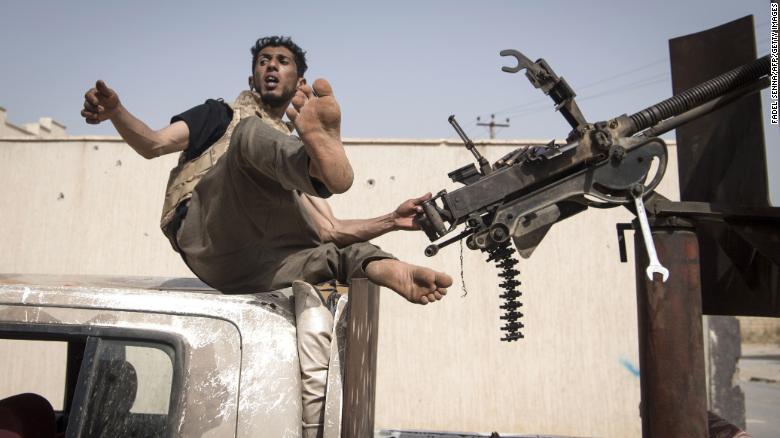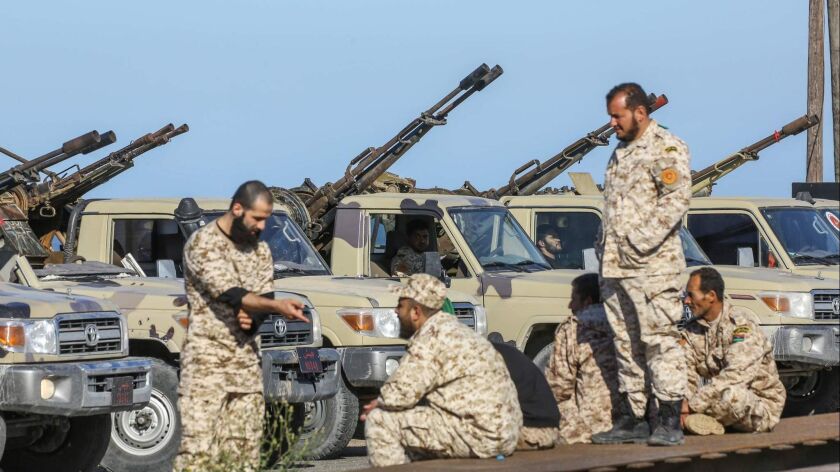Looking back upon my previous posts last semester, I noticed that the majority of my articles focused on conflicts in Latin America and the Middle East. In fact, I have had no posts addressing conflicts in North America or Africa. I am not well informed about many conflicts in regions in Africa and have decided that this semester I am going to make an effort to research the conflicts and report on them.

Source: Giphy
Recently, a ceasefire was broken in Libya, with conflicts breaking out throughout the region. In response, Turkey has reportedly been moving militarily towards the country. Before we can begin to analyze what the broken ceasefire and Turkey moving in means, we must understand the basics of the Libyan Civil War.
Source: LA Times
Back in February of 2011, an opposition group, the National Transitional Council, was spearheading protests in Benghazi, a seaport in Libya. The police led a violent crackdown against the protesters, which spreads to protest to Tripoli, another city in Libya. CNN reports that over 200 protesters were killed across the nation.

Source: Wikipedia
The United States and the rest of the Western world supported National Transnational Council, with many countries placing embargoes upon Libya. NATO became involved in the conflict militarily. By October 23, 2011, the opposition group National Transnational Council declared Libya a free state in Benghazi. However, since 2014, the militia groups that overthrew the regime in 2011 all began fighting with one another over who would rule the state. As a result, there has been a lot of conflict to this day, with different groups controlling different areas of Libya.

Source: BBC
The above report of the civil war in Libya is incredibly basic, and I highly recommend doing some research of your own if you wish to become more well-versed in the topic. However, it provides a sufficient understanding of the conflict that the current events should be easier to follow. On January 19, 2020, leaders in Libya met in Berlin and worked out a ceasefire. Just eight days later, the New York Times was reporting that fighting had broken out across the nation. Kirkpatrick informs that “The leaders of both sides of the Libyan fight have said that they continue to uphold the cease-fire. But both have also said that they were retaliating against rivals’ attacks.”

Source: CNN
Russia and Turkey each support opposing members in the conflict in Libya and have been trying to negotiate a peace deal for many years between the two. Currently, Turkey has been moving troops into Libya to offer support and help negotiate a deal. The Turkish government has been accused of meddling in the conflict on multiple occasions.

Source: Bloomberg
The United States has not taken a strong interest in Libya again, following the NATO airstrikes in 2011. However, a crucial proxy-war between Russia and Turkey is being fought out in the region and I believe it is in the interest of US foreign policy to keep a close eye on what is occurring in the region. There could be large ramifications in Syria, where Russia and Turkey are currently engaged in another proxy-war. Again, I highly recommend that everyone do their own research into the conflict in Libya, as this was a very basic explanation and the conflict is incredibly important.
